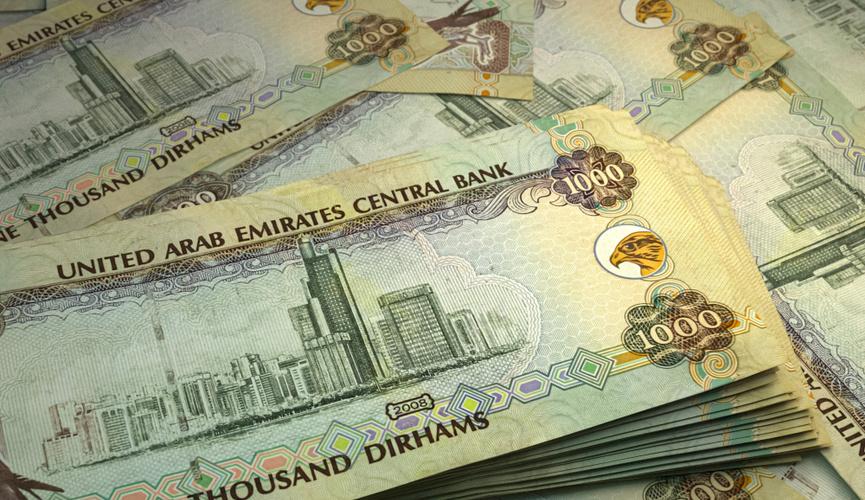Working in the United Arab Emirates has been a dream of many foreign specialists, including Russian-speaking citizens, for decades. The UAE has become one of the most attractive destinations for labour migration due to its high standard of living, lack of personal income tax and stable economic situation. These factors create favourable conditions for professionals seeking employment in fields such as finance, construction, healthcare, technology and many others.
1. Attractiveness of working in the UAE
Curiously, the Emirates do not have a large indigenous population. According to various reports, it is only 10-15% of the total number of people living there. The rest of the Emirates' population are newcomers. So why are there so many of them - and who are they working for?
1.1 Why is working in the UAE so popular with expats?
The UAE stands out from other countries because of its economic development and strategic location, making it a hub for international professionals. Some of the key factors that make the UAE attractive to expatriates include
- No income tax. This allows expatriates to keep more of their income, which is particularly important for highly skilled professionals working in fields where salaries (and therefore taxes) can be significantly higher than in other countries.
- High standard of living. The UAE offers a safe environment, modern amenities and infrastructure, and access to international brands, making life in the country comfortable. Expats enjoy a well-developed network of healthcare, education, transport and commerce - especially in Dubai. It is a large, vibrant, cosmopolitan city that seems to have everything for a good life.
- Stable economy. The UAE has maintained steady economic growth, actively developing not only traditional industries such as oil, but also new areas such as finance, technology, medicine, tourism and real estate. This is creating jobs in a variety of sectors. Needless to say, a stable economy also guarantees consistently high salaries.
Many people come to Dubai for a few years to earn money: to save for a property, another big purchase or a dream. Others stay in the city to get to know it better. In this case, finding a job becomes an afterthought - but you will always find something to suit you here.
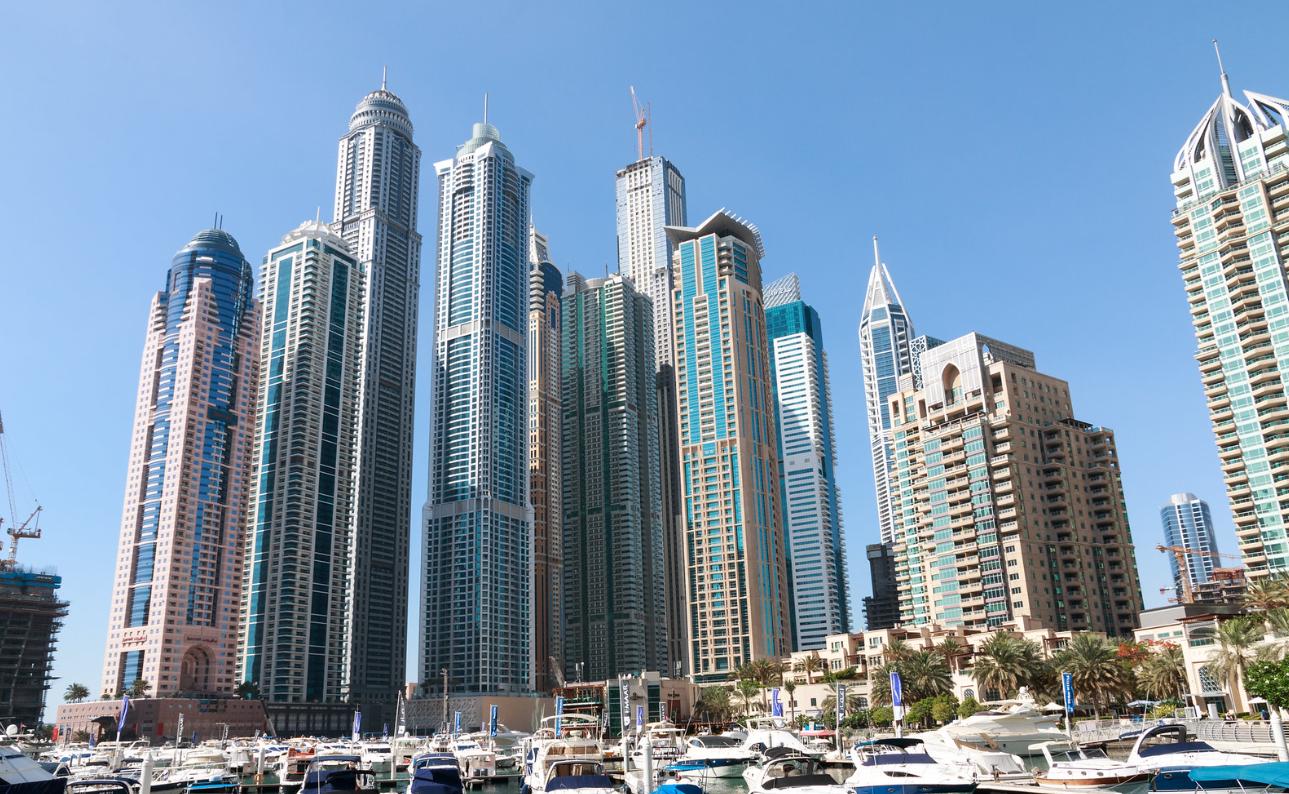
1.2 Advantages for Russian speakers
For Russian-speaking professionals, working in the UAE also offers several unique advantages. Firstly, there is a significant Russian diaspora, particularly in major cities such as Dubai and Abu Dhabi. This creates a comfortable environment for expats, where you can not only work, but also maintain cultural and social ties, speak your native language and provide as much help and support as you can.
Interestingly, the job market in Dubai (and some other emirates) offers positions where Russian language skills are an advantage, if not a must. This is particularly true in industries such as tourism, real estate and international sales. In addition, the cultural sector is growing and requires Russian-speaking professionals. Knowledge of Russian is also an advantage in today's job market, as many tourists and clients speak Russian.
Last but not least, Dubai and the UAE have a mild climate during the winter months. The absence of cold winters attracts those who are tired of the harsh frosts of the CIS countries and are looking for more comfortable living and working conditions. Unlike many Asian countries, the Emirates are renowned for their high level of cultural and entertainment activities, and there is more to do than just relax on the beach. As a result, more and more Russians are choosing the UAE over Thailand or Bali to relocate and work.
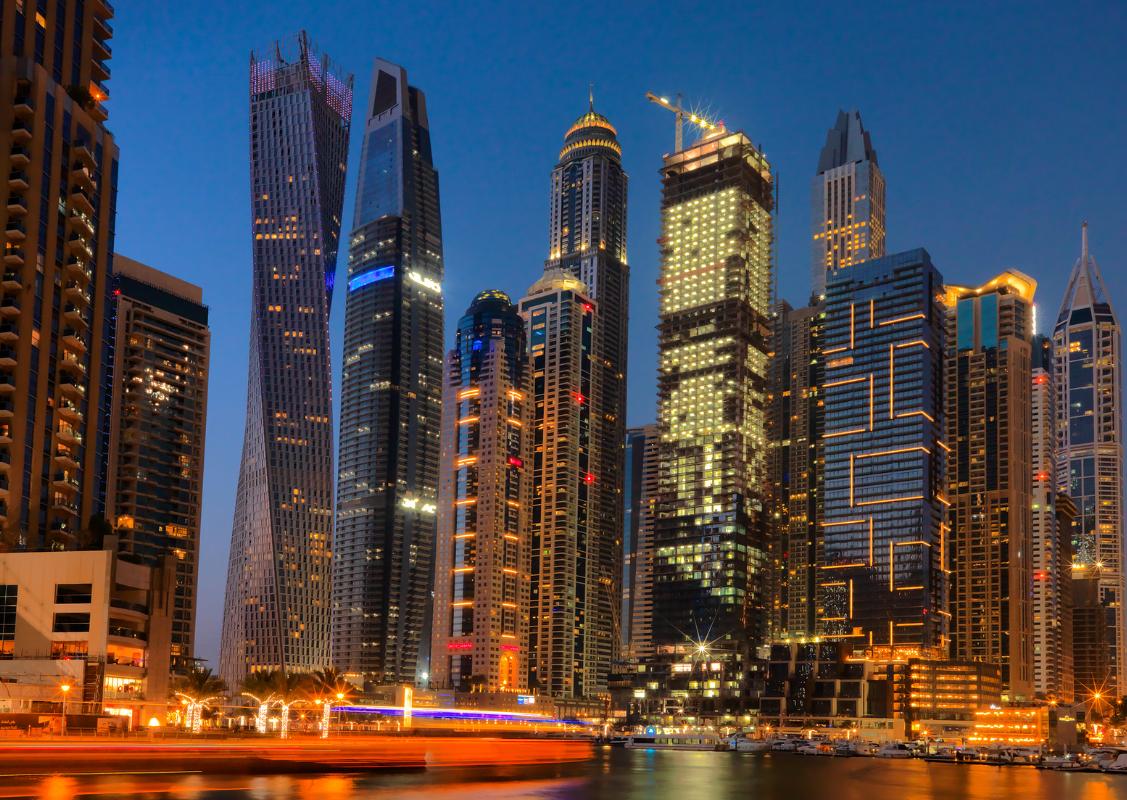
In other words, getting a job in a Dubai company is not only an opportunity to improve your financial situation, but also a chance to enjoy a comfortable life in one of the world's most dynamic regions.
2: Current occupations and skills in demand in the UAE
The UAE is a dynamic country and there are increasing job opportunities in a wide range of sectors. The construction sector, financial and technology companies, as well as the medical and tourism sectors, are all attracting foreign specialists, creating attractive career prospects for professionals.
2.1 Construction and Real Estate
The construction sector in the UAE continues to grow rapidly. Many major infrastructure projects, such as tall skyscrapers, residential complexes and shopping malls, as well as the development of new neighbourhoods and transport facilities, are stimulating a high demand for professionals in this field.
In-demand careers in construction and property:
- General Contractor - a specialist responsible for managing construction projects, coordinating all phases and working with contractors. Average salary: from AED 18,000 to AED 40,000 per month.
- Designers are engineers and architects who are involved in developing plans and designing buildings. Average salary: AED 12,000 to 25,000 per month.
- Structural engineer - responsible for the technical part of construction, including testing materials, installing structural elements and ensuring standards are met. Average salary: AED 10,000 to 20,000 per month.
- Interior and exterior designer - a specialist who creates concepts for the design of residential and commercial spaces. Average salary: AED 8,000 to 15,000 per month.
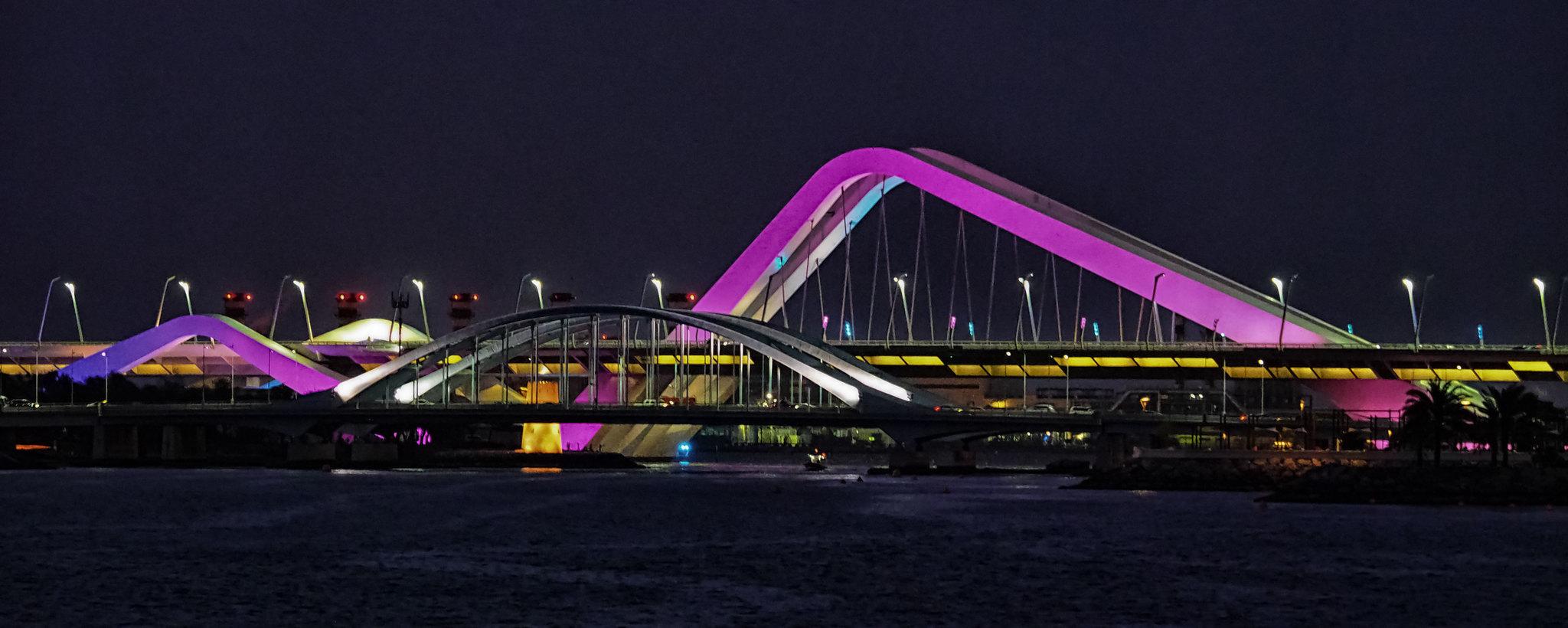
2.2 Financial sector
The UAE is one of the leading financial centres in the Middle East. The sector is growing strongly as a result of the government's strategic efforts and increasing international investment.
Professions in demand in the financial sector:
- Financial analyst - a specialist who analyses financial flows, evaluates investment projects and develops strategies to mitigate risk. Average salary: AED 15,000 to AED 25,000 per month.
- Risk manager - identifies and minimises financial risks. Average salary: from AED 18,000 to AED 35,000 per month.
- Accountants and Tax Consultants - there is a high demand in the UAE for professionals who can help companies comply with financial and tax regulations. Average salary: AED 10,000 to AED 18,000 per month.
- Chief Financial Officer - an executive responsible for a company's financial strategy, budget planning and risk management. Average salary: between AED 25,000 and 50,000 per month.
2.3 Information Technology and Innovation
The IT sector in the UAE continues to grow strongly, particularly in areas such as artificial intelligence, blockchain and cybersecurity. These occupations are in demand in industries such as finance, transport and healthcare, and are also required by government agencies.
IT occupations in demand:
- Software developers in a variety of industries and fields. Average salary: AED 12,000 to 22,000 per month.
- Cyber Security Specialist - A profession related to data security and defence against internet threats is becoming increasingly relevant. Average salary: AED 18,000 to 35,000 per month.
- Data Scientist - Deals with analysing large amounts of data and applying analytics to business. Average salary: AED 15,000 to AED 28,000 per month.
- Blockchain Specialist - a professional capable of developing solutions based on blockchain technologies. Average salary: AED 18,000 to AED 40,000 per month.
- It is worth noting that many Russian IT companies are based in Dubai and are recruiting specialists. Sometimes it is not difficult to join or transfer there if a specialist has the right skills.
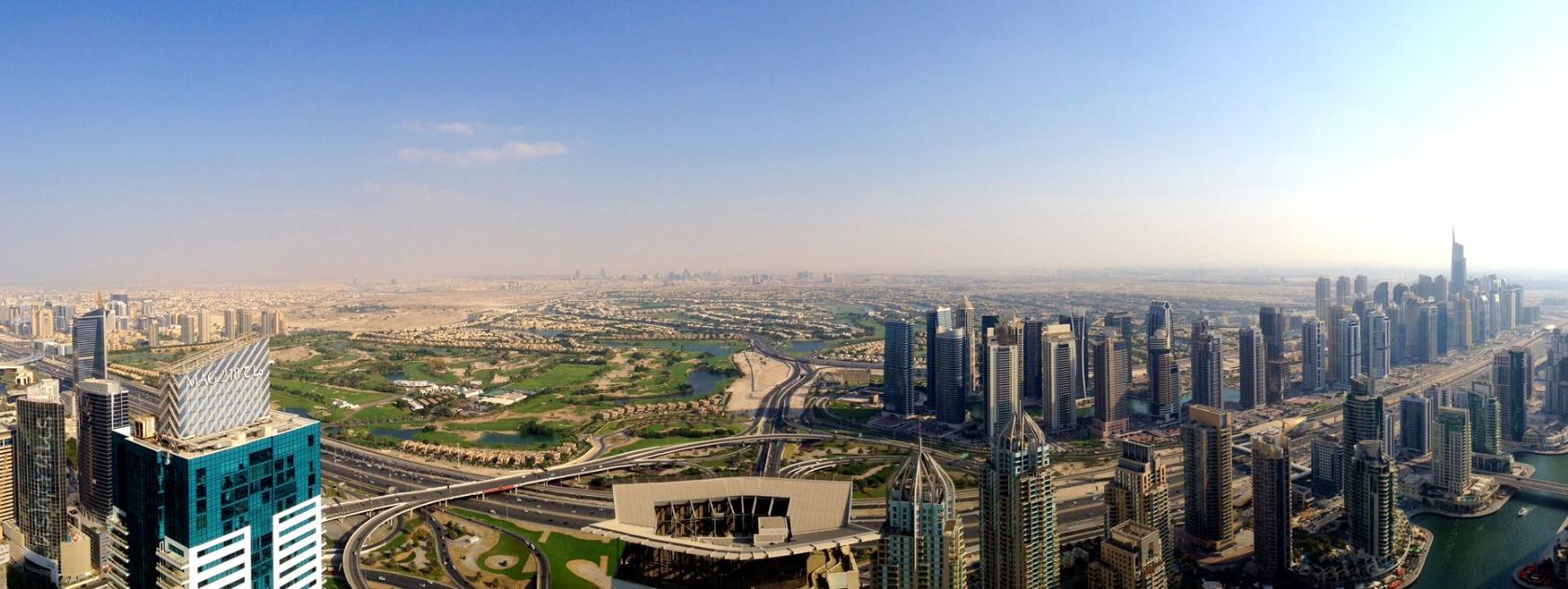
2.4 Health care
In recent years, the authorities have invested heavily in healthcare facilities. Healthcare professionals are in high demand due to the growing number of private clinics and large hospitals. In addition, the UAE government has set itself the goal of making the country a centre for medical tourism in the coming years, capable of competing with Israel in this respect.
In-demand healthcare professions:
- Subspecialists (cardiologist, dermatologist, orthopaedic surgeon) - The UAE is actively seeking highly qualified doctors, especially in a few selected fields. Average salary: AED 20,000 to 45,000 per month depending on speciality.
- Nurse - Qualified nurses are in demand in all major medical centres, with Russian-speaking nurses sometimes required. Average salary: AED 8,000 to 15,000 per month.
- Dentist - with the growing demand for cosmetic dentistry, Russian-speaking dentists are also in demand. Average salary: AED 12,000 to 30,000 per month.
- Pharmacist - Pharmacists are also in high demand. Average salary: AED 8,000 to 20,000 per month.
2.5 Tourism and Hospitality
Tourism has been and continues to be one of the key sectors of the UAE economy, especially in cities such as Dubai, which hosts a number of international events each year. As a result, the hospitality and tourism sector continues to offer a wide range of job opportunities.
In-demand careers in tourism and hospitality:
- Hospitality manager - a manager involved in managing hotel complexes and providing quality service. Average salary: from AED 15,000 to 30,000 per month.
- Travel Agent - a specialist involved in organising tours, travel and services for tourists. Average salary: from AED 8,000 to 18,000 per month.
- Tour guides and interpreters - Tour guides and interpreters who work with international tourists are an integral part of the tourism industry. Knowledge of Russian + foreign language is required. Average salary: AED 6,000 to 12,000 per month.
- Hotel Analytics Specialist - A professional who helps improve business processes in the hotel sector using analytics. Average salary: AED 12,000 to 20,000 per month.
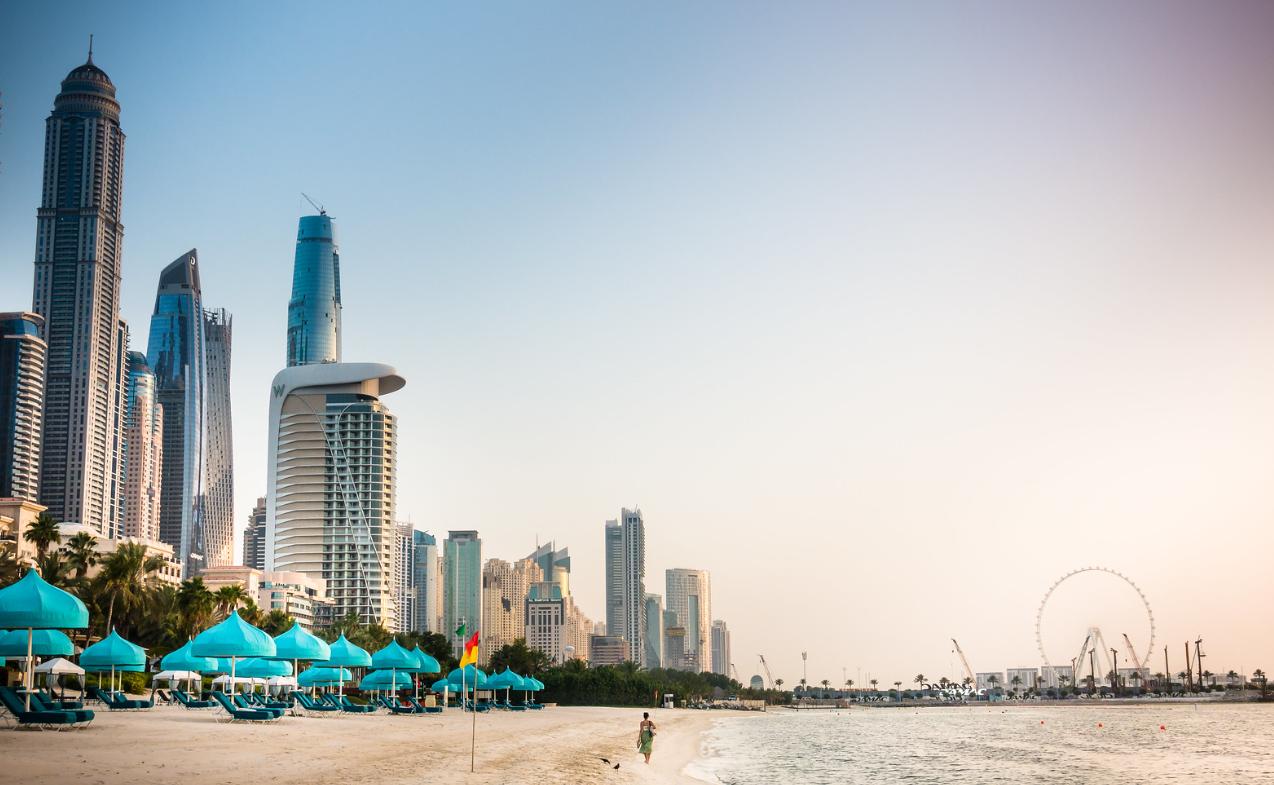
2.6 Education and Teaching
Education in the UAE remains a sector with an ever-increasing demand for qualified teachers, especially for foreign schools and universities. Rarely, but still, there are vacancies for Russian-speaking teachers and academics, although people fluent in English are more often required.
Professions in demand in education:
- English teachers - Teachers of foreign languages, especially English, are in demand in international schools and language centres. Average salary: AED 10,000 to 20,000 per month.
- Mathematics and Science Teachers - Teachers of exact sciences such as physics, chemistry, biology are in demand in public and private schools. Average salary: between AED 12,000 and 22,000 per month.
- Educational administrator - a specialist responsible for organising the work of schools, universities and other educational institutions. Average salary: between AED 15,000 and 25,000 per month.
Note: You can get a job in education without being a teacher. These are administrative staff or, for example, someone working in a marketing department.
2.7 Service and Retail Sector
The retail and services sector in the UAE continues to expand, especially in large shopping malls and online sales networks. Interestingly, Dubai is the 'Mecca' for many Russians who love to shop - so Russians can and should sell here.
In-demand retail and service jobs:
- Sales Manager - a specialist in a variety of retail areas. Average salary: from AED 8,000 to AED 18,000 per month.
- Cashiers and Sales Assistants - Workers who provide customer service in shops and shopping centres. Average salary: from AED 4,000 to 8,000 per month.
- Marketer - a specialist in the promotion of goods and services, creating medium and high level advertising campaigns. Average salary: from AED 12,000 to 22,000 per month.
These are just a few of the many fields that require skilled personnel. Although the job market can be competitive, professionals with the right skills and experience will always be in demand in the UAE, and Russian language skills can be a big plus.
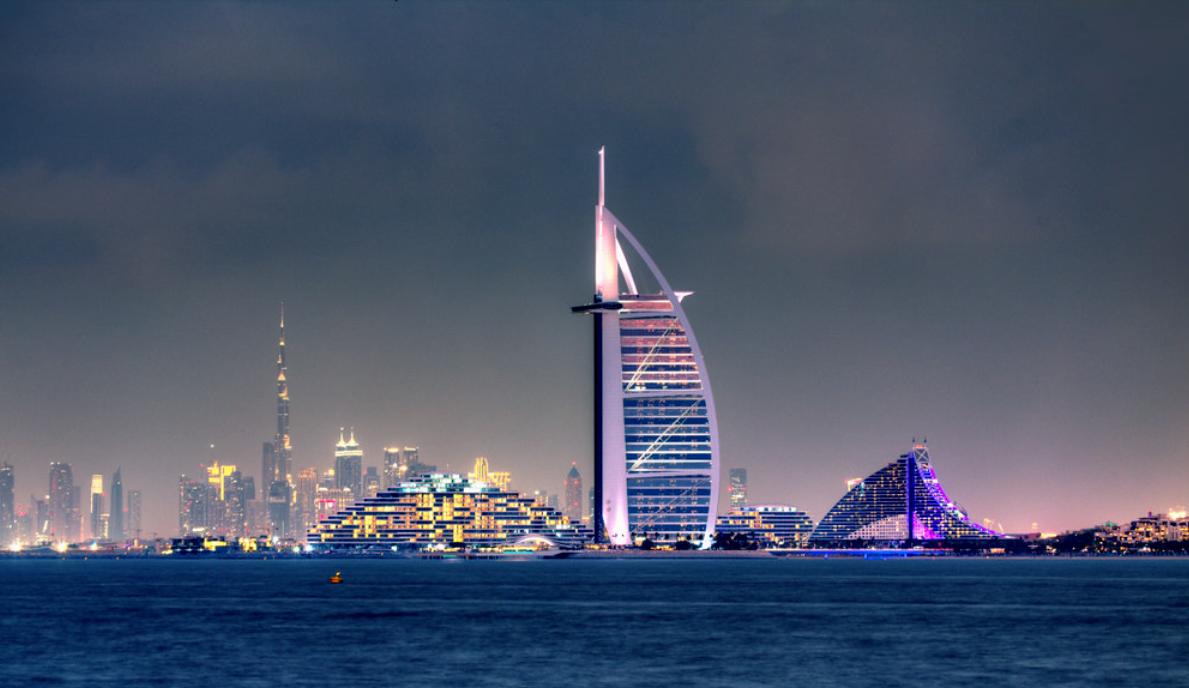
3. Finding a job: practical tips
Finding a job in the UAE requires the use of appropriate tools and resources, as well as active participation in professional communities. Below are tips on the most effective ways to search for jobs and improve your chances of success. The first, of course, is to have in-demand skills in any field. Even if it is a field that is not very developed in the UAE, it is not a fact that a certain number of professionals are not being recruited in it.
3.1 Where to look for vacancies?
There are several main sources for finding vacancies in the UAE, including online platforms, recruitment agencies and professional associations. For an initial introduction to the job market, the easiest way is of course to use online resources. This will give you a basic idea of what is happening in your field, what is on offer, salaries and competition.
Online platforms:
- LinkedIn is one of the largest and most effective platforms for professionals around the world. By posting your CV in English, you can attract the attention of employers in the UAE. LinkedIn not only allows you to search for vacancies, but also to communicate directly with recruiters, receive referrals and participate in thematic groups. It is recommended that you supplement your profile with links to your portfolio if it is relevant to your job.
- Bayt.com is one of the largest job sites in the Middle East, offering jobs for a variety of professionals, from beginners to senior executives.
- GulfTalent is a platform aimed at mid to senior level professionals, particularly in fields such as engineering and information technology. Here you will find job opportunities with attractive terms and conditions for qualified professionals.
- Dubizzle - This site is popular for finding entry-level, temporary and service industry jobs. It is particularly useful for those looking for jobs in Dubai, including those in the hospitality and retail sectors.
- Indeed - this global site also has UAE versions and offers a wide range of job opportunities in industries from commerce to finance.
- Monster Gulf - a job search platform with vacancies in the UAE and other Gulf countries. It also publishes jobs for mid-level professionals.
Recruitment agencies in the UAE can be a good way to find a job, especially if you are unfamiliar with the local job market. Some agencies work with Russian-speaking professionals.
Examples of such agencies include:
- Work Emirates - specialises in the recruitment of Russian-speaking professionals.
- Jetexpo - focuses on Russian-speaking professionals and actively assists in finding vacancies in various fields.
Many agencies offer interview preparation and CV adaptation services. However, it is important to remember that you should not pay agencies before signing a contract - this may be a warning of fraud.

Groups on social networks and messengers can also be useful for finding vacancies. For example, there are communities such as 'Russians in Dubai' on Telegram and Facebook, where vacancies requiring Russian language skills are posted. Members of these groups share useful information and experiences, look for partners or specialists, hire staff for themselves or their companies, and so on. Here you can communicate with those who have been through the job search and relocation process and have already settled. The most honest reviews and real stories are here.
3.2 Networking
Networking is the process of creating and strengthening professional relationships, which is particularly important in the UAE. Often, some jobs are not advertised and can only be obtained through personal introductions. Networking in the UAE helps to identify hidden vacancies and obtain referrals from people within the company.
What does networking in the UAE involve?
- Trade shows and conferences: events such as Gitex (for the IT sector) or the Arabian Travel Market (for tourism) are great places to meet potential employers and colleagues.
- Local meetings and events: Attending meetings organised by the Russian diaspora or local professional groups can provide valuable contacts. An example would be attending business meetings at places such as the Dubai Chamber of Commerce or the Dubai Business Networking Group.
- Social networking: LinkedIn is not only a job search platform, but also an effective networking tool. Actively participating in groups and connecting with recruiters and company employees will help you make useful connections.
3.3 How can you improve your chances?
3.3.1 Create a strong CV
Your CV should be informative and tailored to the needs of UAE employers. Use a chronological format and highlight achievements rather than just responsibilities. Include any key skills, certifications and results from previous projects. This will increase your chances of attracting the attention of recruiters.

3.3.2 Covering letter
Each letter should be personalised and tailored to the specific vacancy. Be sure to emphasise why you are the right person for the job and how your experience can help the company achieve its goals. This letter should demonstrate your motivation and interest in the specific position.
3.3.3 Professional portfolio
If you work in a field where you can showcase your projects, such as design, marketing, engineering or IT, create a portfolio. This will allow the employer to see your real achievements and work, and assess your level of professionalism.
3.4 Common job search mistakes
You will probably find the list of 'job search mistakes' on every website and in every variation. But it is still worth reminding yourself what exactly to avoid:
- Sending a standard CV to all vacancies.
- Jobseekers often send the same CV to all vacancies without tailoring it to the requirements of a particular employer. This can result in a CV going unnoticed.
- Lack of knowledge about the company or industry.
- Employers will always appreciate if you have prepared for the interview and are familiar with the company's operations. A lack of knowledge about the company and the industry may result in you not getting an interview.
- Ignore professional associations and events.
Many job opportunities in the UAE come through personal connections. That's why it's important to actively participate in professional groups and events, even if they seem insignificant.
Tip: If you are looking for a remote job (i.e. one that involves relocation), you will need to be prepared for online interviews. This requires a tidy appearance and a tidy 'background' (a relaxed home environment may not be appropriate).
4. The hiring process: how it works
Of course, every industry and company has its own particularities. However, a more or less general scheme for finding a job in Dubai and the UAE is described below.
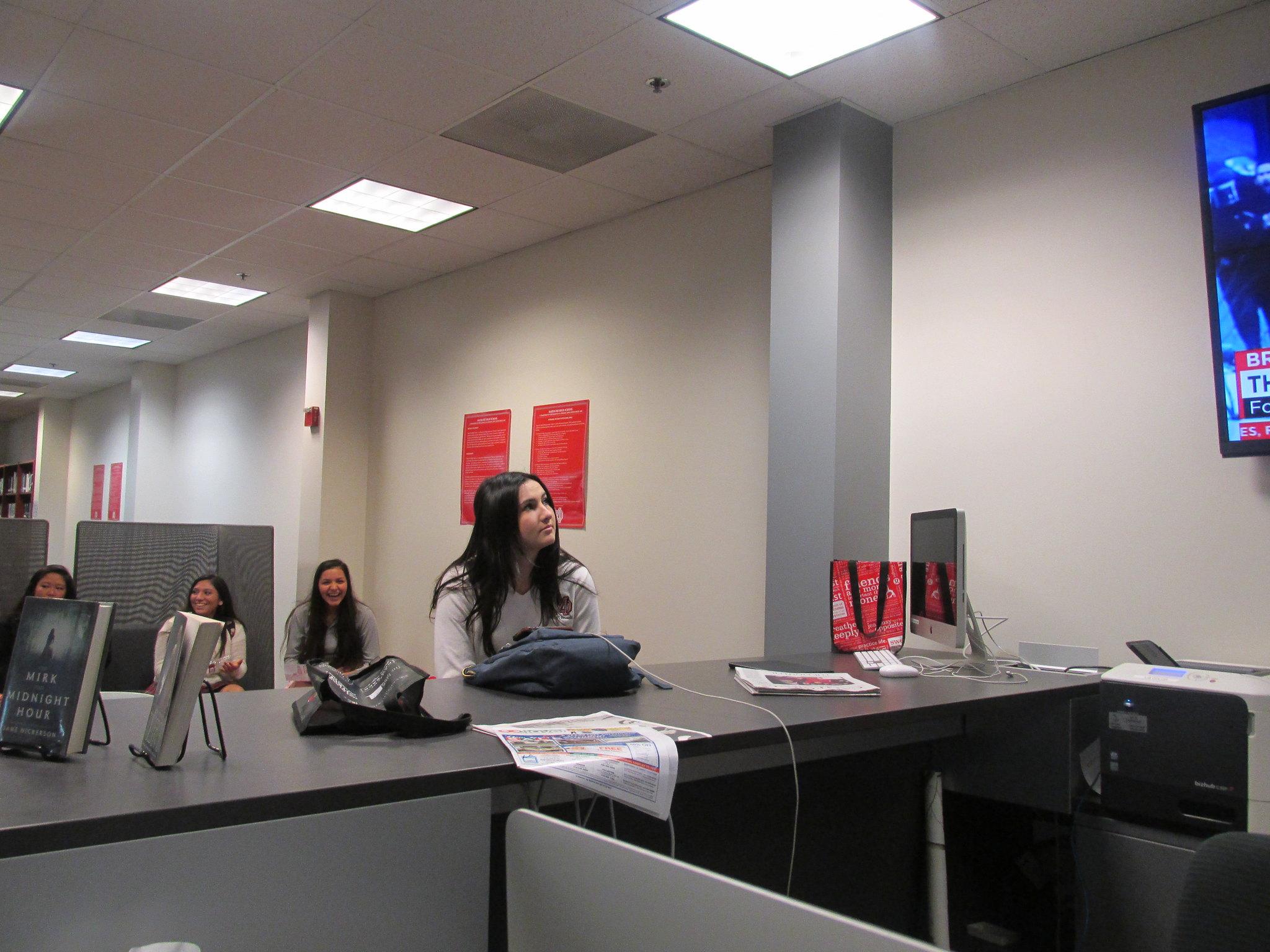
4.1 First stage: preparing and submitting your CV
This stage is critical as the CV is the first thing a potential employer will see. It is important that it is attractive, relevant and tailored to the UAE job market.
Recommended general CV structure:
- Contact details: in English, with international area code and email address.
- Objective: concise, highlighting career aspirations and commitment to working in the UAE.
- Work experience: describe previous jobs with specific achievements, not just responsibilities. UAE employers value practical results.
- Education: List the university, date of graduation and degree obtained. If your education was in another language, tick this as foreign language skills (especially English) are important in the UAE.
- Skills and certifications: List key skills that are relevant to the position. Example: knowledge of software packages, management skills, international certifications, sometimes an English certificate is required.
Some aspects of the job search are different from those in Russia and CIS countries. What to consider when submitting a CV to a company in the UAE:
- International certificates and diplomas are highly valued in the country, especially if you are applying for a role in IT, marketing or finance.
- Translate your CV into English as this is the main business language in the country. In some cases, an Arabic translation may also be required if this is specified in the employer's requirements.

4.2 Candidate selection: tests and interviews
Once the CV has caught the employer's attention, the selection process begins. In the UAE, not only experience and education are important, but also the personal qualities of the candidate. How a company can test these qualities:
- Psychometric tests and technical assignments. In the UAE, it is quite common to use psychometric tests and technical assignments to assess candidates. In IT and engineering fields, these can be programming tasks, technical questions or logic tests. In fields such as marketing or HR, tests often include case study tasks or situational tests.
- Interviews. At their core, interviews in the Emirates are organised in the same way as in other countries. They may consist of several rounds. In most cases there are two stages: initial interview (conducted by telephone or video conference, clarifying general questions), technical interview (in-depth discussion of professional skills and tasks) and final interview (often conducted with the company's management, it is more formal, gentle to assess the fit with the company's culture).
If you are morally prepared for everything, you won't have to worry too much. To help you prepare, you can read about popular interview questions in UAE companies:
- Why did you choose to work in the UAE?
- What do you consider your most important achievements in your previous job?
- How do you deal with conflict in a team?
- What methods do you use to solve professional problems?
- How do you manage your work/life balance?
It may seem that such questions are too deep or intrusive (in Russia they are often perceived with irony or rejection), but for Dubai it is an important point. So it is worth thinking in advance about how to answer them and what to emphasise.

4.3 Formalising the contract
If the employer accepts the candidate, the next important step is to sign the employment contract. In the UAE, an employment contract is a legal document that sets out the rights and obligations of both parties.
Types of employment contracts:
- Open-ended contract: A more flexible type of contract where no time limit is specified. This type of contract is usually used for employees with experience in the UAE.
- Fixed term contract: has a fixed term, such as 2 or 3 years. At the end of the contract, the employment relationship is either renewed or terminated.
What is usually stated in the contract:
- The employer's obligations;
- The employee's obligations;
- Duration (if the contract is fixed-term);
- Salary: the contract should state the exact amount of the salary and the conditions for its payment (monthly, with bonuses and allowances);
- Holidays: the contract must state the right to paid holidays, with a minimum of 30 days per year;
- Health insurance: the employer must provide health insurance for the employee and his/her family (in some cases this is an additional option for the employee's family);
- Visa application;
- Termination: the contract should contain clauses on how the contract can be terminated (e.g. at the initiative of one of the parties with a certain period of notice).
Important: It is advisable to seek legal advice before signing a contract, especially if this is your first experience of working in the UAE. Check all the terms and conditions to avoid any misunderstandings.
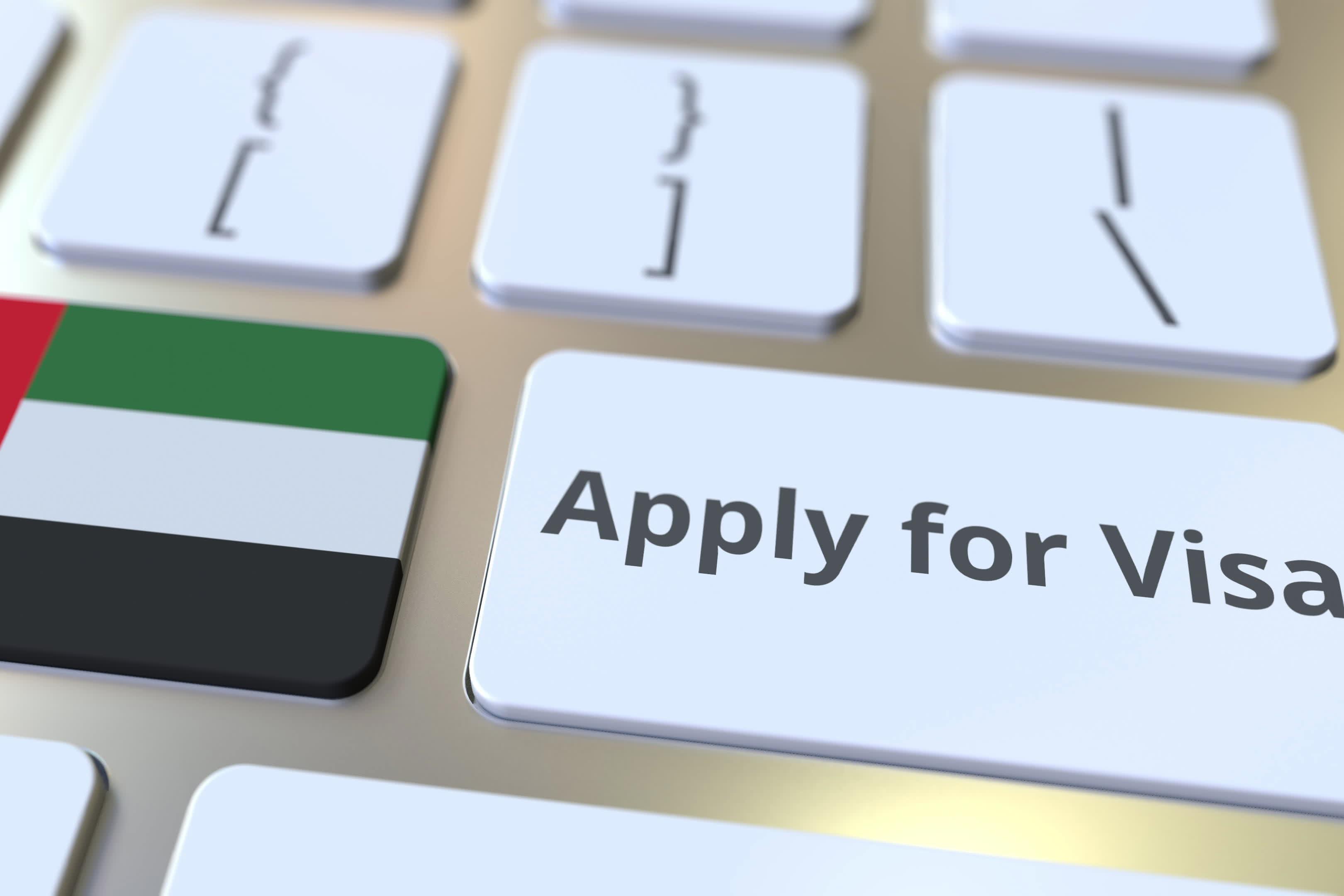
4.4 Obtaining a work visa
After signing the contract, the employer will apply for a work visa. This is a crucial step as you will not be able to work and stay legally in the country without a work visa. In the UAE, the work visa is issued by the employer and the process is relatively quick, although there are a number of formalities that need to be completed.
The visa process:
- The employer applies for the visa on your behalf.
- A medical examination and tests for infectious diseases are required.
- You must obtain a work card: this is required for all employed foreigners and is issued by the Ministry of Labour.
- You will then be issued with a work visa, which allows you to work for a company and stay in the UAE for a limited period of time.
A work visa is usually issued for a period of 2 to 3 years. When the visa expires, the employee can extend the visa by entering into an employment contract with a new employer or by continuing to work for the same company by renewing the contract.
A work visa only entitles you to work in the UAE for the employer who issued it. If you decide to change jobs, you must obtain permission from the Ministry of Labour and apply for a new visa.
Important: The employee may already have a residence visa for other reasons. This usually entitles the employee to work in the UAE, in which case the employer does not need to apply for a new visa.
A work visa can often be the basis for obtaining a visa for family members (spouse and children). This makes it much easier for the whole family to settle in the UAE.

4.5 Transition from interview to job
Once an individual has passed all the stages and received a work visa, the process of adapting to the new job begins. It is important to remember that the UAE has a special culture of business and communication, and successful adjustment depends largely on understanding these traditions. Many companies provide new employees with induction training, which may include an introduction to the company culture, training programmes and safety instructions.
The work culture in the UAE is known for its discipline and strict requirements for employees, but employers also offer flexible arrangements for expats to help them balance work and personal life. In addition, employers often organise company events where employees have the opportunity to not only showcase their professional skills but also build team spirit, which also helps to improve the working atmosphere.
Cultural events also play an important role in the lives of Russian-speaking expats. Russian schools under the auspices of the Russian Embassy in the UAE organise cultural events such as celebrations of Russian national holidays, theatre performances, master classes and exhibitions. This not only allows people to keep in touch with the culture of their homeland, but also to make contacts with other Russian-speaking people.
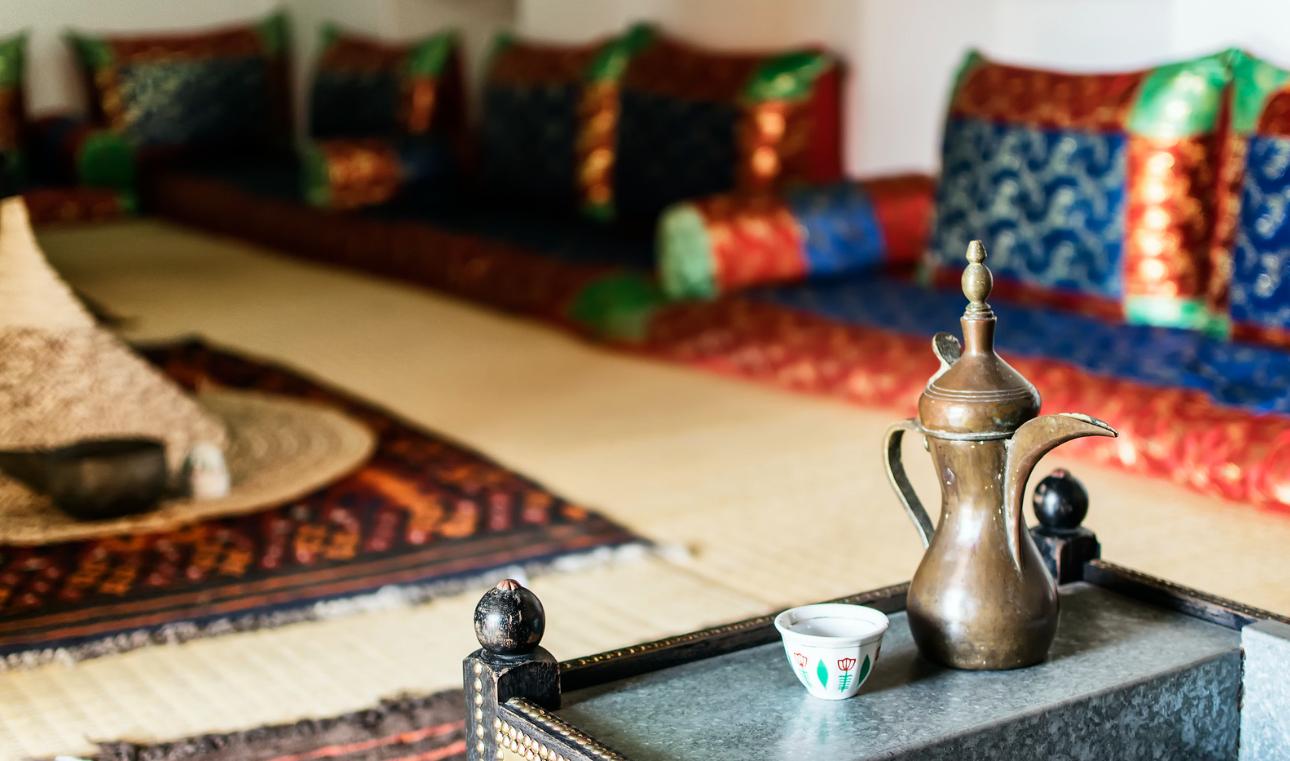
In the UAE, there are a number of workers' rights that are protected by labour laws. These rights cover both working conditions and social guarantees for expatriates working in the country. It is useful for anyone applying for a job in Dubai and other Emirati cities for the first time to be aware of them:
- Working week: is 40-48 hours depending on the industry. Employees may work 6 days a week, but in some areas (e.g. government departments) there is a 5-day working week.
- Weekends: traditionally Friday and Saturday. This means that the working week usually starts on Sunday. Some sectors, such as commerce and hospitality, have more flexible schedules.
- Paid holidays: In the UAE, all employees are entitled to 30 calendar days of paid leave per year. Importantly, the leave must be taken during the working year. In the event of termination of employment, the employee is compensated for unused leave days.
- Retirement Savings and Compensation: Expatriate employees in the UAE are entitled to a severance package at the end of their contract. This is based on length of service and is a percentage of salary. Employees who have been with the company for less than a year do not receive any compensation, but the amount of compensation increases from the second year onwards.
In the event of a labour dispute with an employer, employees in the UAE can file a complaint with the Ministry of Labour. The process for resolving labour disputes in the UAE is fairly quick and efficient. If the parties cannot reach an agreement, the matter may be taken to court.
7. Taxes and benefits for expatriates working in the UAE
The UAE is known for its unique tax system, which differs from most other countries. One of the most attractive features for expatriates is the absence of personal income tax. This means that UAE residents and employees do not have to pay tax on income earned in the country, which significantly increases their net income.
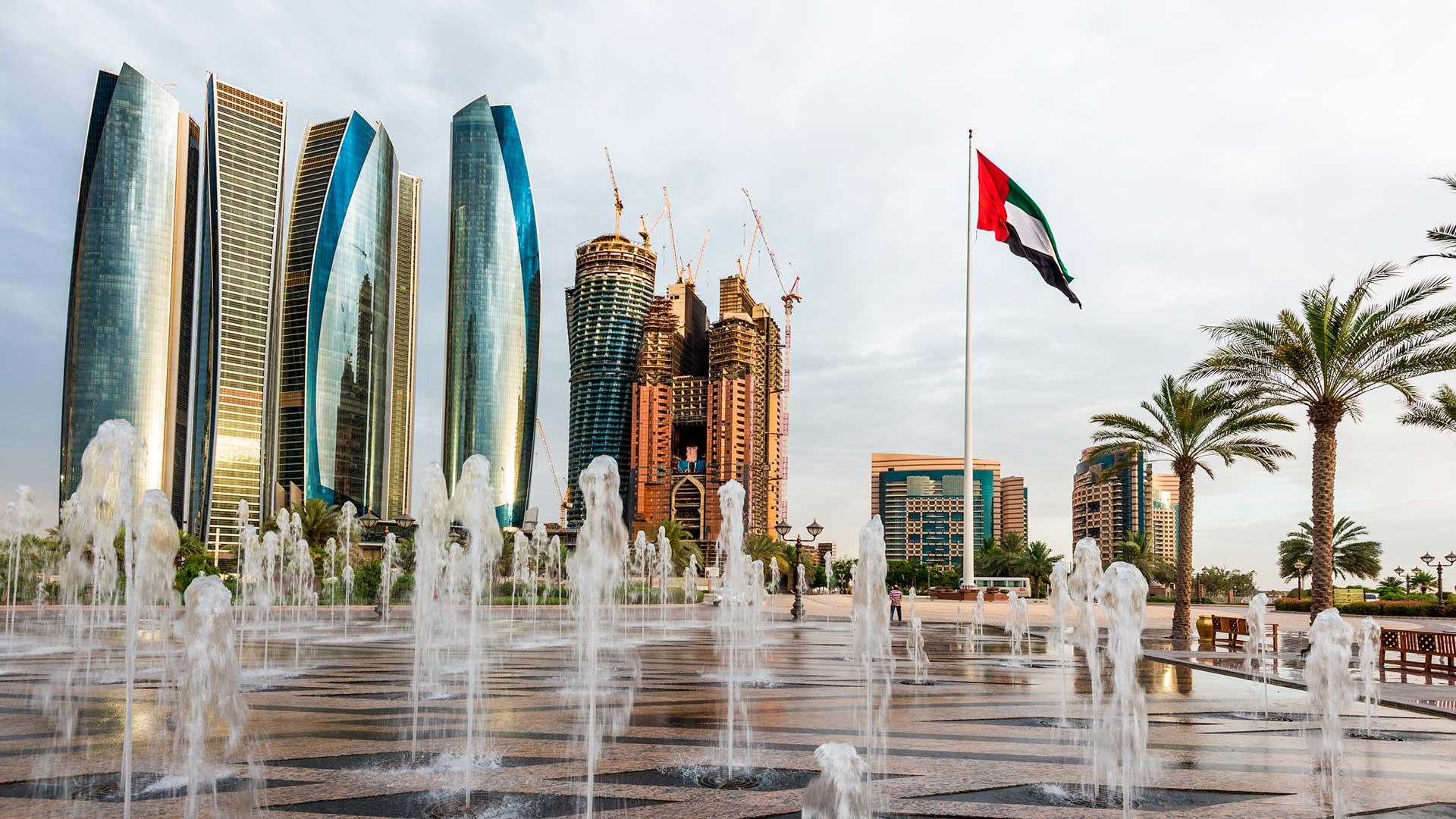
However, it is worth noting that there is a value-added tax (VAT), which was introduced in 2018 at a rate of 5%. This tax applies to most goods and services and affects everyday spending, but does not affect personal income.
Tax residency in the UAE is crucial for expatriate professionals as it determines what taxes they are liable to pay. The main criterion for tax residency in the UAE is the number of days spent in the country. To become a tax resident, you must spend at least 183 days a year in the country. UAE tax residents are not required to pay income tax on their income.
Tax residency may affect access to international double taxation treaties, which reduce the tax burden on expatriate professionals working in the UAE if they are also liable for tax in their country of residence.
While the tax system in the UAE remains attractive to expatriate workers, the country has taken steps in recent years to broaden the tax base and introduce new tax mechanisms. It is expected that a more comprehensive corporate tax will be introduced in the future, which will apply to all companies operating in the country, regardless of their industry.
Changes are also expected in terms of tax incentives for expatriate professionals, particularly in special economic zones, as the UAE government continues to increase tax measures to fund government programmes and social welfare.
